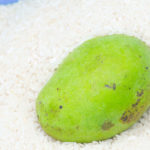In addition to meat and vegetable dishes, tubers are an essential source of nutrition and can be prepared in a variety of delicious ways to suit all family members.
Potatoes are a prime example. According to the Food Safety Department of the Ministry of Health, potatoes provide a diverse range of nutrients, including vitamin C, B6, fiber, iron, protein, and even fat. They are also affordable, which is why many families tend to buy them in bulk for various dishes.
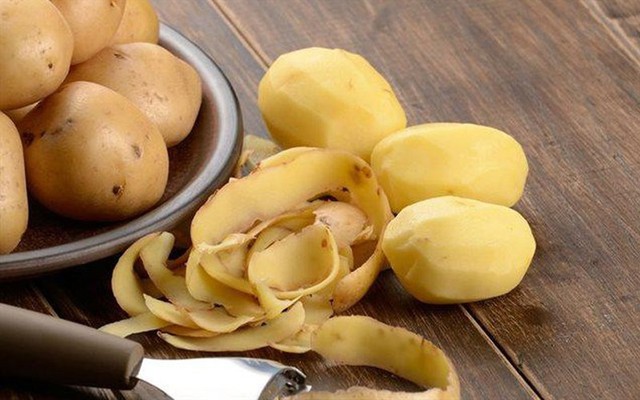
Illustration
However, not everyone knows how to properly store large quantities of potatoes at home. Improper storage can lead to sprouting and rotting. Consuming potatoes in this state can affect both your health and the quality of your meals, and throwing them away is wasteful.
Therefore, as soon as you buy potatoes, it’s essential to apply the following storage methods to prevent spoilage, even if you plan to keep them for a year.
1. Store in a Plastic Bag with Apples
It may sound strange, but potatoes can indeed be stored with apples in a plastic bag. Specifically, experts explain that apples produce ethylene gas, which can effectively inhibit the production of auxin in potatoes, thereby slowing down their sprouting process. Thus, storing apples and potatoes together can prolong the shelf life of potatoes without affecting the quality of either.
Place two to three apples and your potatoes in a plastic bag, then tightly seal it. Hang the bag in a well-ventilated, dry area.
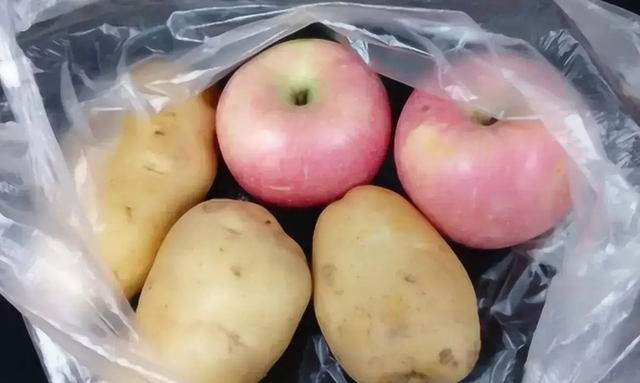
Storing potatoes and apples together can prevent sprouting and deterioration (Illustration)
2. Store Potatoes in a Carton Box with Salt, Pepper, and Water
A carton box can also be an excellent storage environment for potatoes when combined with salt, pepper, and clean water. Here’s how to do it:
– When you buy potatoes, give them a good wash to remove any dirt and grime from the surface and skin. There’s no need to be gentle for fear of damaging the potatoes; getting rid of the dirt is more important.
– Before or after cleaning the potatoes, prepare a basin of clean water and add salt to it, stirring until the salt is completely dissolved.
– Once the salt is fully dissolved, soak the potatoes in the saltwater for about 10 minutes. This process will help prevent the potatoes from sprouting.
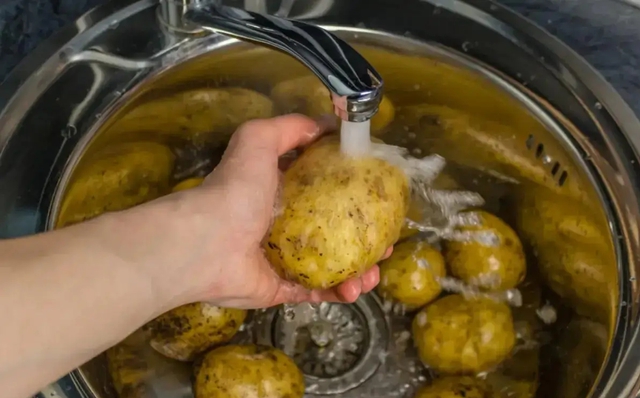
Soak the potatoes in saltwater…
– After the allotted time, remove the potatoes from the saltwater and use paper towels or a clean cloth to absorb the excess moisture, ensuring the potatoes are dry.
– Once the potatoes are completely dry, carefully place them in a carton box. You can also substitute the carton box with various paper boxes.
– Finally, sprinkle a small amount of pepper on top of the potatoes. Zanthoxylum bungeanum, an active compound in pepper, not only helps kill bacteria but also prevents the potatoes from rotting and deteriorating.
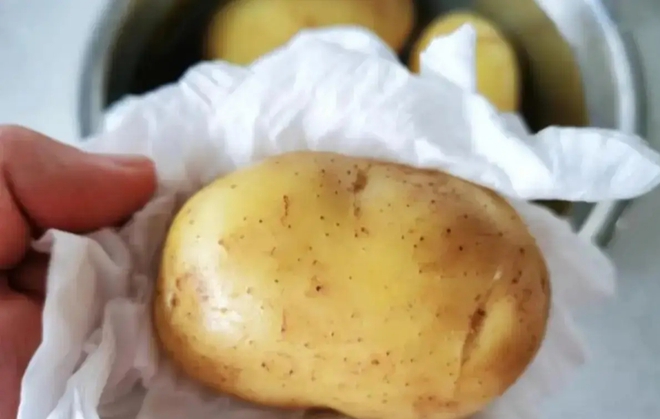
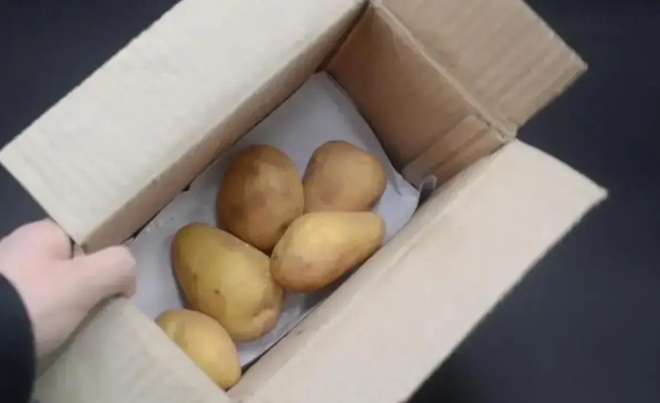
Then dry and store them in a carton/paper box with a little pepper (Illustration)
Once you’ve completed all the steps, close the box and store it in a cool, dry place. This method will keep your potatoes fresh and sprout-free for up to a year.
Tip for Choosing Fresh Potatoes with a Long Shelf Life
In addition to storage tips, you can also consider the following advice when purchasing potatoes to ensure you get the freshest, most nutritious tubers for your family’s meals.
First, pay attention to the color of the potatoes. A nutritious and sweet potato will have a golden-yellow skin rather than a white one. Also, check for any signs of greening or sprouting, as these indicate the presence of toxins that could be harmful to your health.
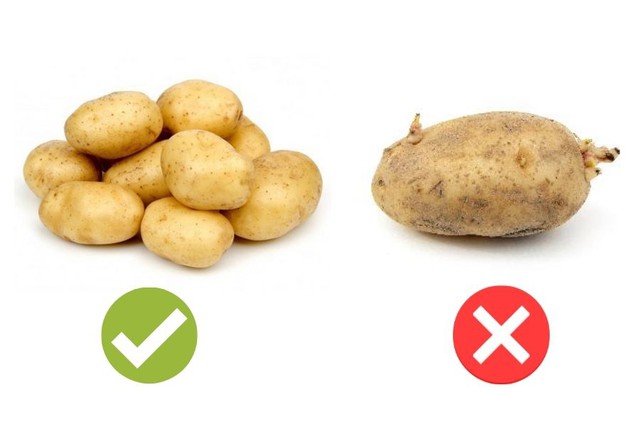
Illustration
Next, pick up a potato and feel its weight. A good potato should feel firm and heavy, with minimal bruising, no black spots or moisture on the skin, and no soft spots when pressed. Avoid potatoes with wrinkled skins, as these are likely old and dried out, resulting in a bland taste and reduced nutritional value.
Moreover, potatoes with deep scratches or dents tend to spoil faster once purchased and can cause the surrounding potatoes to spoil as well.
According to aboluowang






























